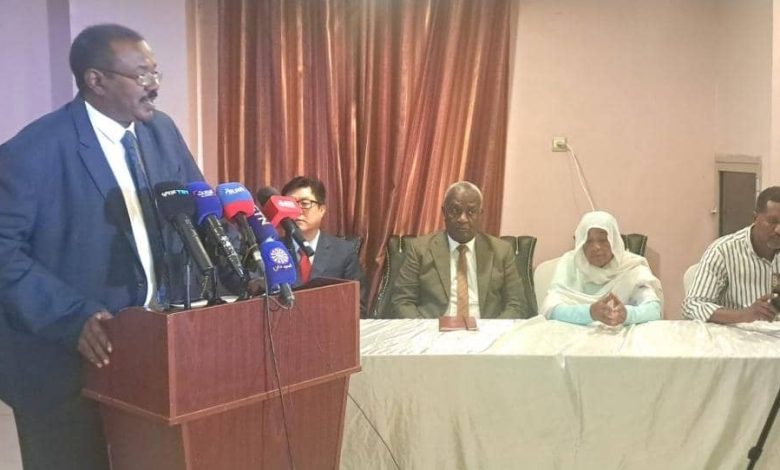The Minister of Agriculture rules out a famine in Sudan

Sudan Events – Rehab Abdullah
The Minister of Agriculture and Forestry, Dr. Abu Bakr Omar Al-Bushra, ruled out that Sudan was exposed to famine, and questioned the validity of the reports that spoke of Sudan being exposed to famine due to the war and the lack of delivery of humanitarian aid. He said that the reports received by them confirm that there will be no famine in Sudan.
He added in a joint press conference with the Governor of the Gezira Scheme, at the Al-Busiri Hotel in Port Sudan, (Tuesday) that famine occurs, as is known globally, due to drought or pests, which did not happen, noting that the report prepared by the World Food and Agriculture Organization (FAO) with the participation of teams from the Ministries of Production did not talk about the existence of famine in Sudan.
He said that the existing strategic stock of grains in the silos of the Agricultural Bank and crop markets is estimated at about 226 thousand tons, in addition to what private sector companies import.
Al-Bushra pointed out the great damage caused by the Rapid Support Militia to the agricultural sector, other than the direct attacks, noting that it hindered the use of modern technologies and prevented the delivery of agricultural inputs and foodstuffs that people need in the areas it controls in Darfur, Kordofan, and Gezira.
The Minister of Agriculture and the FAO representative signed the report on the situation of agriculture and food in Sudan in light of the expansion of the war, marking its adoption as a reference according to which organizations and United Nations agencies deal.
He pointed to the destruction caused by the militia to the agricultural research center.
Al-Bushra called on United Nations organizations to participate in delivering agricultural and food inputs to the states of Darfur, West and South Kordofan for the coming season, which the Rapid Support Militia prevents from reaching citizens.
The FAO report said that the delivery of food and agricultural inputs to the population in areas controlled by the Rapid Support Militia faces rejection from the militia in (Gezira, Khartoum, and the states of Darfur, South and West Kordofan). The report referred to the needs for corn and millet, indicating that they were (661.64) minor. He said that they were expected, especially since the “report” mentioned that they exceeded more than 7 million acres that were planted but not harvested, and therefore they were not included in the report.
He also pointed out that the needs for wheat (2,442.9) are normal, and the decrease in production usually occurs as in every season as a result of the lack of irrigated areas, the narrow areas and climate suitable for wheat, and the strict requirements for the wheat crop, other than corn and millet, is available globally and at lower prices than the local product. In the short term, the report recommended providing life-saving humanitarian assistance to the most vulnerable populations, in addition to designing and implementing a campaign to distribute high-quality seeds for the next agricultural season. In the event that it is not possible to provide them locally, it is advisable to obtain seeds from neighboring countries of varieties suitable for Sudan and begin collecting and purchasing them early to allow for their timely distribution when the security situation improves and national institutions become operational again. He called for supplementing humanitarian assistance with interventions aimed at enhancing local production, improving food security and enhancing market performance.



